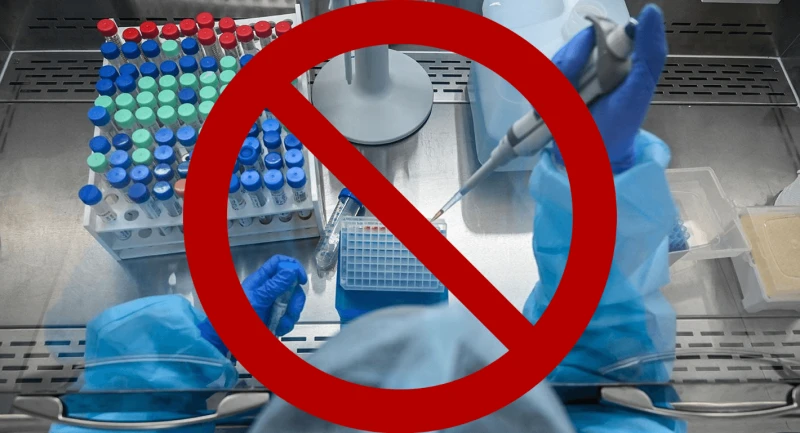Viewpoint: ‘Lefty food and farm’ group’s implacable opposition to genetic engineering imperils life-saving virus research, writes Mother Jones
Viewpoint: ‘Lefty food and farm’ group’s implacable opposition to genetic engineering imperils life-saving virus research, writes Mother Jones


[Recently, the Center for Food Safety] sued the National Institutes of Health in an attempt to force the agency to reveal information about its funding for what is known as “gain-of-function” research — the term refers to a category of lab work that seeks to understand how viruses create pandemics.
…
Why would this lefty food and farms group—and they aren’t alone—rail against high-level virology research? The key to the answer has to do with the Center for Food Safety’s long opposition to the practice of genetic engineering. In a recent phone call, I spoke to CFS’s [Andrew] Kimbrell, who explained what he sees as the connection.
[See the GLP profile on the Center for Food Safety here.]
“You genetically engineer bacteria and plants, then you genetically engineer animals, then you genetically engineer embryos—all that has happened, with some promise, but also a tremendous amount of danger and threat,” he said. “Now, viruses are not technically an organism, but they are living biological elements. So, they fit certainly within that narrative: Just because we can do something doesn’t mean we should do something.”
With tens of thousands of followers on social media, anti-GMO groups have the potential to turn the tide of public opinion; hanging in the balance is science that could potentially help prevent the next pandemic.
Read the original post

 | Videos | More... |

Video: Nuclear energy will destroy us? Global warming is an existential threat? Chemicals are massacring bees? Donate to the Green Industrial Complex!
 | Bees & Pollinators | More... |

GLP podcast: Science journalism is a mess. Here’s how to fix it

Mosquito massacre: Can we safely tackle malaria with a CRISPR gene drive?

Are we facing an ‘Insect Apocalypse’ caused by ‘intensive, industrial’ farming and agricultural chemicals? The media say yes; Science says ‘no’
 | Infographics | More... |

Infographic: Global regulatory and health research agencies on whether glyphosate causes cancer
 | GMO FAQs | More... |

Why is there controversy over GMO foods but not GMO drugs?

How are GMOs labeled around the world?

How does genetic engineering differ from conventional breeding?
 | GLP Profiles | More... |

Alex Jones: Right-wing conspiracy theorist stokes fear of GMOs, pesticides to sell ‘health supplements’




 Trust issues: What happens when therapists use ChatGPT?
Trust issues: What happens when therapists use ChatGPT? Fighting deforestation with CO2: Biotechnology breakthrough creates sustainable palm oil alternative for cosmetics
Fighting deforestation with CO2: Biotechnology breakthrough creates sustainable palm oil alternative for cosmetics Viewpoint — Fact checking MAHA mythmakers: How wellness influencers and RFK, Jr. undermine American science and health
Viewpoint — Fact checking MAHA mythmakers: How wellness influencers and RFK, Jr. undermine American science and health Viewpoint: Video — Big Solar is gobbling up productive agricultural land and hurting farmers yet providing little energy or sustainabilty gains
Viewpoint: Video — Big Solar is gobbling up productive agricultural land and hurting farmers yet providing little energy or sustainabilty gains California, Washington, Oregon forge immunization alliance to safeguard vaccine access against federal undermining
California, Washington, Oregon forge immunization alliance to safeguard vaccine access against federal undermining 30-year-old tomato line shows genetic resistance to devastating virus
30-year-old tomato line shows genetic resistance to devastating virus The free-range chicken dilemma: Better for birds, but with substantial costs
The free-range chicken dilemma: Better for birds, but with substantial costs ‘You have to treat the brain first’: Rethinking chronic pain with Sanjay Gupta
‘You have to treat the brain first’: Rethinking chronic pain with Sanjay Gupta
